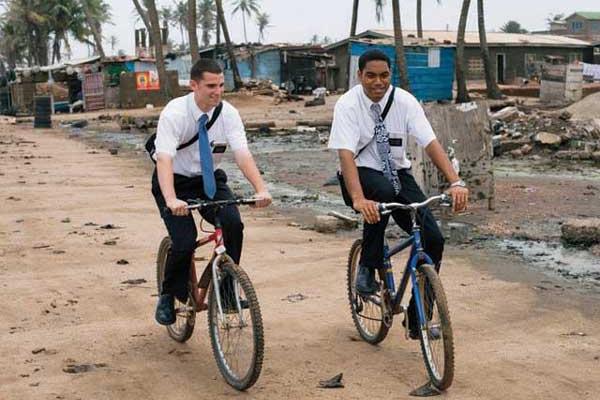NASHVILLE, Tenn. — Jake Pulsipher's first day as a working missionary for the Southern Baptist Convention's North American Mission Board began at 6:30 a.m. with prayer and exercise, followed by breakfast and study.
Then he put on a black suit, white shirt, and red tie, along with his official name tag, and headed out to knock on doors and tell people about Jesus. In doing so, he became the latest of 20,000 Mormon missionaries in the United States.
Every year, the Southern Baptist Convention and the Church of Jesus Christ of Latter-day Saints spend tens of millions of dollars to spread their takes on Christianity. They rely heavily on thousands of faithful volunteers willing to spread out across the country to share their faith.
The two groups are among the four largest denominations in the United States -- Southern Baptists are second and Church of Jesus Christ of Latter-day Saints fourth, according to the Yearbook of American and Canadian Churches from the National Council of Churches. The Catholic Church is No. 1 and the United Methodist Church is No. 3.
They are also competitors for converts, says Richard Land, president of the Southern Baptist Convention's Ethics and Religious Liberty Commission.
''Methodists are not out knocking on doors. Mormons are,'' he said.
Read the Full Article

